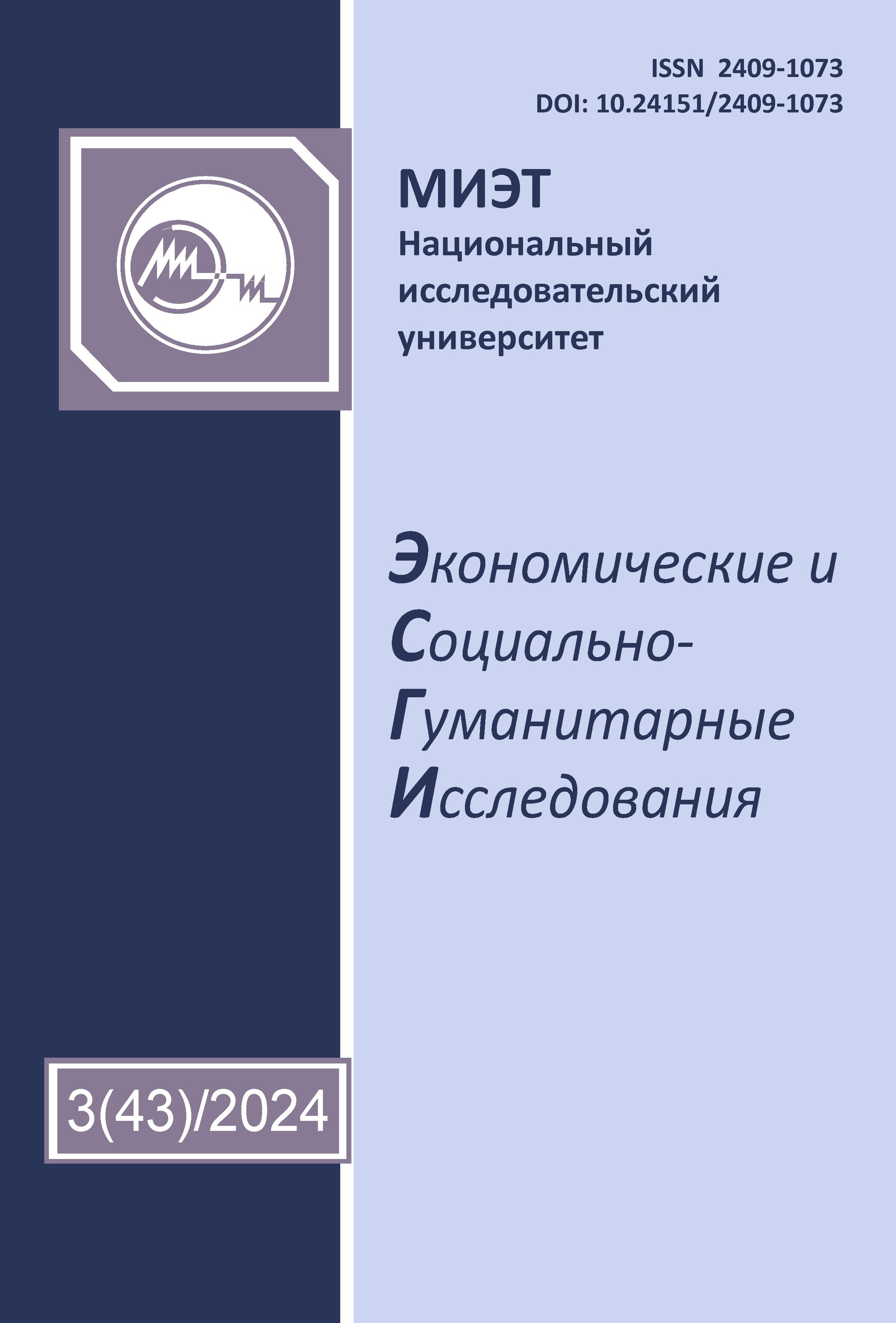employee
Russian Federation
UDC 316.4
In this work, the peculiarities of small and medium-sized enterprises functioning in the modern economy through the formation of social capital are analysed in order to create a theoretical basis for improving the quality of relations between the state and small businesses. The peculiarities of development strategies based on the network approach, involving institutions of civic activity, with account for the potential of the family and the ethnic origin of social groups are considered. Using the theories of R. Putnam, P. Bourdieu, J. Coleman, the significance of social capital in increasing the potential of small business in the growth conditions of entrepreneurial activity has been revealed. The main algorithms of business fragmentation as a result of small business adaptation to tax regime policies are examined. The method of public evaluation according to the criteria of prestige, trust and profitability of business is used to determine the potential of business in Russia.
small business, entrepreneurship, business economics, social capital, business fragmentation, trust, government regulation, tax regime policy, ethnic minorities, public valuation
1. Bol’shakova Yu. M., Bol’shakov S. N. “Social Inequality and Problems of Economic Growth”. Korporativnoye upravleniye i innovatsionnoye razvitiye Severa: Vestnik Nauch.-issled. tsentra korporativnogo prava, upravleniya i venchurnogo investirovaniya Syktyvkarskogo gos. un-ta = Corporate Governance and Innovative Economic Development of the North: Bulletin of Research Center of Corporate Law, Management and Venture Investment of Syktyvkar State University 3 (2016): 12—18. (In Russian). EDN: https://elibrary.ru/WYCZLP.
2. Roscongress Foundation. “Key Trends in Economic Development of the Russian Federation — 2023”. Roscongress. 16 Jan. 2024. Web. 30 Aug. 2024. <https://roscongress.org/en/materials/klyuchevye-trendy-ekonomicheskogo-razvitiya-rossiyskoy-federatsii-2023/>.
3. Bol’shakov S. N., Bol’shakova Yu. M., Mikhal’chenkova N. A., Tkachev S. A. “On the Problem of Modern Russian Business’ Interaction with State: the General and the Particular”. Korporativnoye upravleniye i innovatsionnoye razvitiye Severa: Vestnik Nauch.-issled. tsentra korporativnogo prava, upravleniya i venchurnogo investirovaniya Syktyvkarskogo gos. un-ta = Corporate Governance and Innovative Economic Development of the North: Bulletin of Research Center of Corporate Law, Management and Venture Investment of Syktyvkar State University 2 (2014): 1—14. (In Russian). EDN: https://elibrary.ru/SIFQQL.
4. “Occupations in Russia: Prestige, Economic Viability, Demand”. VCIOM News. 05 July 2023. (In Russian). Web. 30 Aug. 2024. <https://wciom.ru/analytical-reviews/analiticheskii-obzor/professii-v-rossii-prestizh-dokhodnost-vostrebovannost>.
5. Shlihter A. “The Middle Class in the US and Russia: Distinctive Features, Structural Changes, Problems in the Labour Market and Social Mobility”. Obshchestvo i ekonomika = Society and Economy 12 (2023): 119—132. (In Russian). https://doi.org/10.31857/S020736760029184-1 EDN: https://elibrary.ru/WDYJXQ.
6. Andrews James. “UK Diversity in Business Statistics 2023”. Money.co.uk. 01 Feb. 2023. Web. 06 Sep. 2024. <https://www.money.co.uk/business/business-statistics/diversity-in-business-statistics>.
7. Bourdieu Pierre. Die verborgenen Mechanismen der Macht. Hamburg: VSA-Verlag, 1992. 175 S. (In German). Schriften zu Politik & Kultur 1.
8. Coleman James S. Handlungen und Handlungssysteme. Oldenbourg: Oldenbourg Wissenschaftsverlag, 1991. xvi, 474 S. (In German). Bd. 1 aus Grundlagen der Sozialtheorie [Foundations of Social Theory]. https://doi.org/10.1515/9783486827262
9. Coleman James S. “Social Capital in the Creation of Human Capital”. American Journal of Sociology 94.1 (1988): S95—S120.
10. Putnam Robert D., ed. Democracies in Flux: The Evolution of Social Capital in Contemporary Society. Oxford: Oxford Univ. Press, 2004. 528 p.
11. Putnam Robert D., Hrsg. Gesellschaft und Gemeinsinn: Sozialkapital im internationalen Vergleich. Gütersloh: Bertelsmann Stiftung, 2001. 798 S. (In German).
12. Gomes-Casseres Benjamin. “Alliance Strategies of Small Firms”. Small Business Economics 9.1 (1997): 33—44. https://doi.org/10.1023/A:1007947629435
13. Ingram Paul, Clay Karen. “The Choice-Within-Constraints New Institutionalism and Implications for Sociology”. Annual Review of Sociology 26 (2000): 525—546. https://doi.org/10.1146/annurev.soc.26.1.525
14. Loury Glenn C. “Discrimination in the Post-Civil Rights Era: Beyond Market Interactions”. Journal of Economic Perspectives 12.2 (1998): 117—126. https://doi.org/10.1257/jep.12.2.117
15. D’Urso Pierpaolo, De Giovanni Livia, Sica Francesca G. M., Vitale Vincenzina. “Measuring Competitiveness at NUTS3 Level and Territorial Partitioning of the Italian Provinces”. Social Indicators Research 173 (2024): 9—51. https://doi.org/10.1007/s11205-021-02836-y
16. “Rent a Start-Up Space for as Little as $15 a Day”. The Straits Times Singapore. 30 March 2013: n. p. Web. 06 Sep. 2024. <https://www.straitstimes.com/singapore/rent-a-start-up-space-for-as-little-as-15-a-day>.
17. Schwingel Markus. Bourdieu zur Einführung. Hamburg: Junius Verlag, 1995. 184 S. (In German).
18. Cunha Derek da, ed. Singapore in the New Millennium: Challenges Facing the City-State. Singapore: ISEAS Publ., 2002. 281 p.







